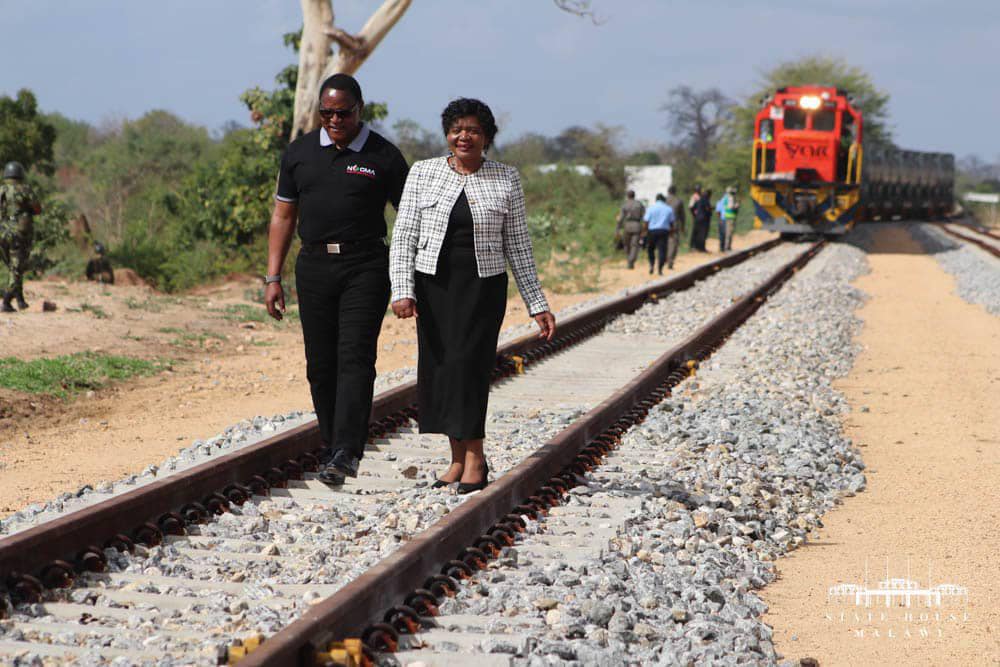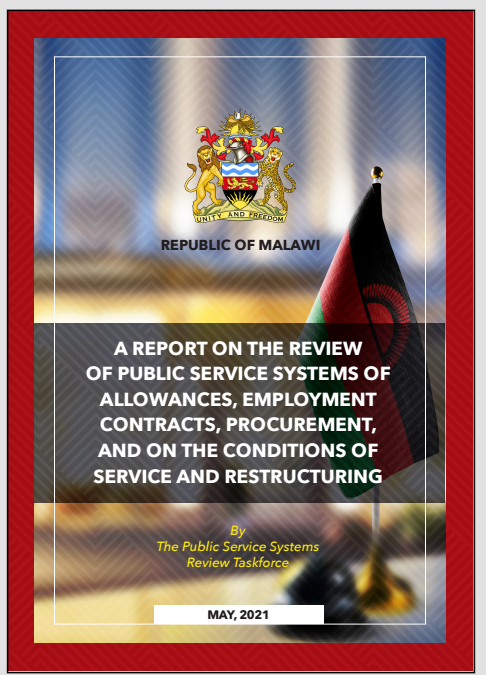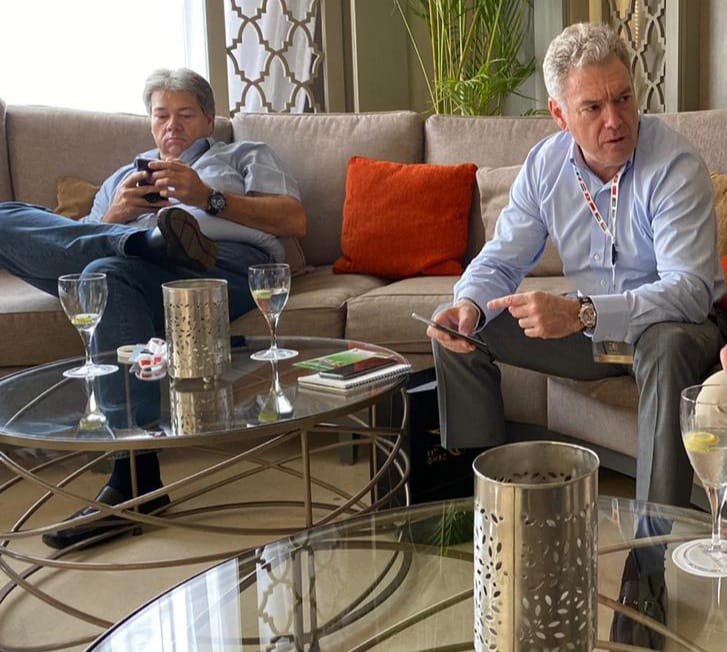The Malawi Government withdrew the Marka railway construction contract from Mota Engil, claiming a fraudulent awarding process. Eventually, China Railway 20 Bureau Group Corporation was awarded the contract, and once on the ground, it started asking the government to cough up more money than the contract sum. Government engineers have protested some of the claimed funds, but is this project another invoicing scam? JULIUS MBEŴE The Malawi government has adjusted several times the contract sum of the Marka-Bangula railway project, raising fears that the Chinese firm constructing the railway, China Railway 20 Bureau Group Corporation, is fraudulently exploiting loopholes in the Malawi government procurement systems to reap more than the contract sum. Evidence seen by Platform for Investigative Journalism (PIJ) suggests in several instances, government evaluators including engineers have questioned the validity of the firm’s claims to justify the price adjustments. The revelations of the questionable price adjustments come as the 72-kilometre Marka-Bangula project is scheduled to cost K141 billion more than initially planned, as previously revealed by local media. The process of awarding the contract for the designing, rehabilitating, and upgrading of the Marka and Bangula railway in Nsanje has always been replete with controversy after the government cancelled the initial contract, which was awarded to Portuguese firm Mota Engil, amid allegations of political interference and corruption. In September 2021, the Ministry of Transport and Public Works announced a notification to award a contract to Mota Engil after evaluating four bids: Mota Engil’s bid valued at 48 billion Kwacha, China Railway 20 Bureau Group Corporation’s bid of 60 billion Kwacha, and China Civil Engineering’s bid of 79 billion Kwacha. Mota Engil was the lowest bidder, with procurement laws obliging public entities to hire the lowest bidders after a technical evaluation. However, soon after the intention to award the contract was announced, the Anti-Corruption Bureau (ACB) stopped the awarding, citing an investigation into abuse of office and corruption. On 3rd December 2021, the Bureau ordered that the bids be re-evaluated, noting in a press release that findings of its investigations had “faulted the Evaluation Team for substantially departing from the requirements of the Bidding Document when evaluating the bids contrary to the provisions of the Public Procurement and Disposal of Assets Act and the Bidding Document for this contract.” Price adjustments On April 12, 2023, France-based engineering company R&H Rail (Pty) Ltd, the engineering consultant for the project, informed the Ministry of Transport and Public Works of the intention by the contractor– China Railway–to adjust the contract sum, according to documents sourced by the PIJ. The contractor wrote to the engineering firm on March 10, 2023. “The letter (CR20/2023/CLA/02) received from the Contractor on 10th of March 2023, has reference. The Contractor communicated to the Engineer that they want to implement a Price Adjustment per GCC Sub-Clause 13.6. This adjustment is due to the increase in fuel, as well as the Government of Malawi's devaluation of the Malawi Kwacha in May 2022. During the meeting between the Employer, the Contractor and the Engineer on 24th February 2023, the Employer indicated that the Price Adjustments from the Contractor are permitted, but should not be added to the Bill of Quantities (BoQ). Price adjustment to rates must be accommodated in each Interim Payment Certificate (IPC), as and when applicable…” reads a letter signed by the firm’s resident engineer, Chriti du Plessis. The letter confirms that the previous Sub Clause 3.7, “Adjustment for Changes in Cost” has been removed from the Contract’s Particular Conditions. The letter from China Railway, also sourced by PIJ, titled “Request to Incorporate Schedules of Cost Indexation,” cites a rise in material price inflation as the reason for the price adjustment request. It claims increases in fuel prices in April and June 2022 by 31.3 percent and 30 percent, respectively, and the government’s devaluation of the Kwacha currency on May 27, 2022. “After submission of our tender on the 11th of January 2022, the cost of labour, goods and other inputs has risen noticeably above the tendered rates,” reads the letter signed by Guo Zhinan, the Project Manager. “We refer to Sub-Clause 13.6 of the General Conditions of Contract (GCC), which states that the contract price shall be adjusted to take account of any increase or decrease in Cost resulting from a change in the laws of the country,” Zhinan added. In a letter dated March 15, 2023, the project engineer responded to a detailed claim for delay of construction works the engineer received on February 24, 2023. The engineer, among others, observed that the number of days calculated between November 3 and December 6 was incorrect; equipment and quantities mentioned were different from the monthly reports submitted by the contractor and engineer for the duration in question; inclusion of Sundays, which the engineer observed could not be added to the working days; and the total number of personnel mentioned were different from those in the monthly reports authored by the engineer and contractor himself. “No Schedule of Works was submitted describing the work, which was affected by the suspension of work issued by the Employer. However, the Engineer refers to the schedules submitted with the contractor’s monthly reports during the suspension period,” wrote Engineer Christi du Plessis. The engineer estimated the correct costs in a table appendix to the letter. SEE TABLE. On April 11, 2023, an engineering firm recommended that the contractor claim MK1.7 billion Kwacha (MKW1, 702, 865, 600.00), excluding taxes and levies, for the government’s delay in commencing the work due to an incomplete environmental impact assessment. In May 2023, the company wrote another letter pushing for the payment, as shown below: According to a former senior government official at the Treasury, such invoicing inflates contract sums. “This is how it’s done. In this case, even more peculiar is that the government cancelled a contract for the same project, fearing that it was undervalued deliberately,” said the source. The project aims to open a transportation corridor to the port of Beira in Mozambique. The Mozambican government also constructed kilometres of railway line after the two countries’ presidents jointly commissioned the project. A senior executive in a major Malawian conglomerate told PIJ that the rest of the industry fears its future due to what it perceives as undue Chinese dominance “We are seeing trends in Zambia and other African countries. It appears that when the Chinese arrive, they push everyone out,” he said. In an interview with The Nation newspaper, Minister of Transport and Public Works Jacob Hara justified the increase in cost, citing a change in the railway line’s design to align with Mozambican standards. “There are now more works besides the railway. I also changed the bearing load capacity of the rail to match what our Mozambican counterparts have already constructed on their side. It is now 20.5 tonne/axle load from the previous 18 tonne/axle load,” said Hara. In its statement in 2021 announcing the order to re-evaluate the contract award, the Anti-Corruption Bureau hinted that it was investigating Mota Engil for possible corruption in its contracting processes with the Malawi government. “MOTPW (Ministry of Transport and Public Works) should re-evaluate the last three bidders with consideration being made to the areas of non-compliance to Bidding Document that the Bureau raised in the communication to the Ministry and investigations some of which predate this investigation, that the bureau is currently undertaking against the first lowest bidder.” As the once blue-eyed firm for the Malawi government, Mota Engil is accused of pocketing billions of Kwacha for uncompleted road projects. A National Audit Office (NAO) project audit found several roads where the company pocketed billions for uncompleted or shoddy work. In one case, in the Rumphi-Nyika-Chitipa road in northern Malawi, Mota Engil claimed K2.3 billion for works performed out of the K5.1 billion contract amount and got at least K2 billion, representing 46 percent of the contract price. Findings reveal that the project stalled. The company also made another suspicious claim of K27.5 billion for the Livingstonia-Njakwa road in the northern region. Still, it received K24 billion out of the contract amount of K39.8 billion. However, the remaining work was not even half of the 75-kilometre stretch, construction of which commenced in November 2016 and was expected to be completed by July last year. When contacted, the Ministry of Transport and representatives of China Railway 20 Bureau refused to comment on the matter. The ministry’s spokesperson did not respond to repeated requests for comment, while Kondwani Mlotha, the Planning Engineer for China Railway 20 Bureau Group Corporation, said the company’s agreement with the government does not allow it to comment to the press. “We don’t have the liberty to share that information as per our contract,” Mlotha said. “If there is to be any communication with journalists or similar inquiries, it must go through the Ministry for approval, and sometimes they respond directly.” In an interview, Infrastructure Transparency Initiative (CoST) Malawi Programme Manager Lyford Gideon faulted the government’s criteria for awarding contracts based on merely the “lowest bidder.” “Our understanding is that contracts should be awarded to the ‘lowest evaluated bidder,’ not the lowest bidder. Where the lowest evaluated bidder shall mean a bidder who has satisfied all the technical and financial aspects as required. Such an approach has the potential to close loopholes in the delivery of the project,” Gideon said. He said companies regularly submit unrealistically low bids to secure contracts, only to request price adjustments later. He added that such strategies, while advantageous during competitive bidding, can undermine the credibility and efficiency of the procurement process. “Price adjustments can be legal if provided for in the contract documents and if the triggers are hit. A contract may provide for a price variation clause, while some can be fixed. What is most important is for parties involved to act with honesty and professionalism,” said Gideon. CoST’s recommendations to address these challenges include reviewing the legal framework and enforcing personal liability for officers whose actions result in financial losses to the public purse. READ MORE: Questions over Malawi-Mozambique K48 billion railway project Changed fortunes for government’s favoured contractor Chinese firms edge out Portuguese company in Malawi’s construction industry Ministry of Transport cover up after misleading President Chakwera ……………………………………………………………………………………………………………… This article was produced by the Platform for Investigative Journalism (PIJ), a non-profit and public interest centre for investigative journalism. ABOUT THE AUTHORS: GOLDEN MATONGA is a journalist working with PIJ. He is a member of the International Consortium for Investigative Journalists (ICIJ) and his work has appeared in the New York Times, The Financial Times, The Economist, Mail & Guardian, The Continent, among others. He has won several awards for his PIJ investigations. Email: Golden Matonga X: @GoldenMatonga JULIUS MBEŴE is a journalist who regularly writes for PIJ on good governance and human rights. He has previously worked for YONECO FM. Email: [email protected] X: @CaleoneMbewe



.jpg)
.jpg)



